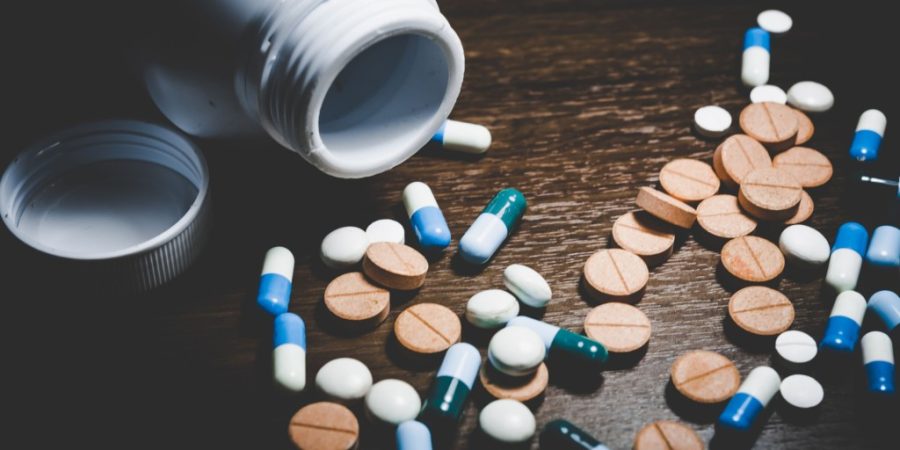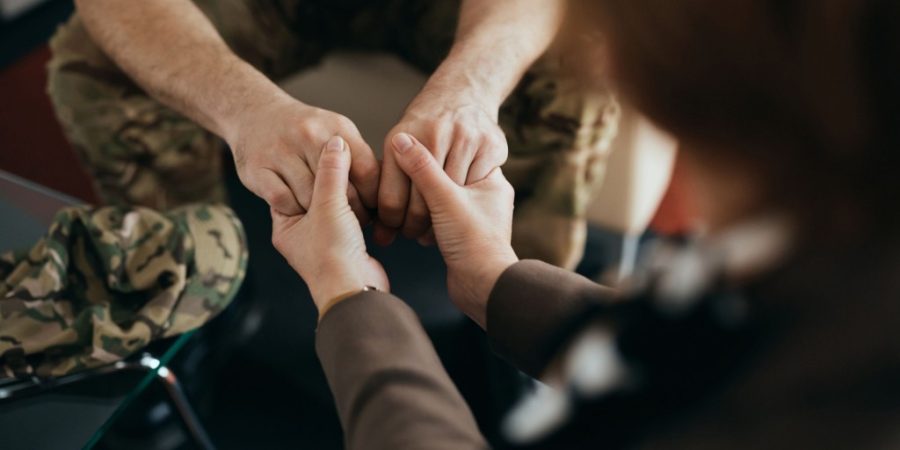
If you are a veteran looking for more information about prescription drug addiction treatment, Heroes’ Mile is here to help. As important as rehab is to recovery, much of it remains shrouded in uncertainty. We seek to change that by providing in-depth outlines of what various routes to recovery have to offer.
Today, we would like to illuminate different treatment programs for veterans who need help for prescription drug abuse. Read on to learn more about the addiction recovery process.
Table of Contents
Who Needs Prescription Drug Addiction Treatment?

Every day, millions of individuals across the country receive prescriptions to help with a plethora of conditions and ailments. But how many of those people end up abusing their medication? How many will need prescription drug addiction treatment?
Over 16 million Americans misuse their prescription medications every year. Of those, roughly 12 percent are addicted. As data like this often relies on self-reporting, it’s estimated that the true numbers could be much higher.
In addition, certain drugs have more addictive qualities than others. According to the National Institute on Drug Abuse, some of the most commonly misused prescription medications include:
- Opioids
- Benzodiazepines
- Barbiturates
- Stimulants
Someone may develop an addiction to prescription drugs from any number of causes. Some people may take more than they are prescribed because they feel their dosage is too low, especially in the case of painkillers. Others may develop a tolerance to their medication and continue taking it to avoid withdrawal symptoms.
In any case, small decisions like these can evolve into addiction if left unaddressed. If you find yourself using your prescription past its intended timeframe or taking a higher dose than you’re prescribed, you may benefit from prescription drug addiction treatment.
Veterans and Prescription Drug Abuse
More than almost any other demographic, veterans are predisposed to alcohol and drug addictions. Common reasons for this include chronic pain as well as mental distress, such as that caused by post-traumatic stress disorder (PTSD), combat exposure, service-related injuries, and military sexual trauma.
To illustrate this more clearly, consider that 60 percent of veterans returning from the Middle East experience chronic pain. In other words, over half of all veterans could pursue a prescription for painkillers to help them cope with their symptoms.
With opioids being among the most commonly prescribed painkillers as well as the most addictive, this places veterans in a dangerous position regarding opioid addiction. Furthermore, opioid addiction can escalate to heroin use if someone loses access to their prescription or builds too much of a tolerance.
To avoid the risk of stumbling down this slippery slope, veterans should seek prescription drug addiction treatment as early as possible. If that’s why you’re here, know that help exists and recovery is possible. Your next step is to determine the right treatment program for you.
Prescription Drug Addiction Treatment Programs
When someone seeks prescription drug addiction treatment, they may be under the impression that there is a single, rigid path to recovery. However, the reality is that recovery looks different for everyone. What works for one person may not work for another. Someone’s home life or the severity of their addiction could influence their optimal treatment plan, too.
To help organize and explain some of your options, we’ve outlined three common addiction treatment programs below. Based on your unique needs, you may spend time with all of them, or just one.
Medical Detox
The first stage of prescription drug addiction treatment usually involves a detox. When a person regularly takes a drug for a prolonged period of time, their body may develop a physical dependence on it.
As a result, it throws their body off-balance when they try to stop taking the drug. This causes unpleasant withdrawal symptoms to manifest as the body works to correct its chemical imbalances.
Withdrawal symptoms can vary depending on the type of drug, but common examples include sweating, tremors, nausea, and vomiting. In rare cases, complications like seizures may arise as well. If left untreated, these can become life-threatening.
This is where a medical detox program demonstrates its stark advantage over riskier at-home detoxes. A medical detox places patients under 24/7 medical supervision throughout the five-to-seven-day process. Teams of licensed physicians and addiction experts can help them soothe and manage their symptoms, no matter how mild or severe. In this way, this prescription drug addiction treatment program lets you start your recovery on the right foot.
Residential Rehab for Veterans by Veterans
After detox, a patient may enroll in a residential rehabilitation program to further their prescription drug addiction treatment. This is the most intensive form of treatment available, and it tends to benefit those with severe addictions the most.
Also known as inpatient treatment, residential rehabilitation involves a patient living on-site at the treatment facility throughout the program’s duration. They spend every day immersed in psychoeducational activities and therapies. Furthermore, inpatient treatment provides a sense of structure and safety that patients may not experience otherwise.

The residential rehabilitation program at Heroes’ Mile employs a wide variety of evidence-based prescription drug addiction treatment options, such as:
- Cognitive behavioral therapy
- Eye movement desensitization and reprocessing therapy
- Group therapy
- Counseling services for family members
- Art therapy
- Equine therapy
- 12-step programming
These therapies typically revolve around teaching important life skills and healthy coping methods. For example, instead of turning to substances, someone may learn how to openly communicate their feelings and pain, identify their own signs of struggling, or find soothing activities that help them through moments of distress.
In addition, as discussed above, all individuals who live with substance use disorders experience addiction in their own way. Each patient has their own story, and as such, Heroes’ Mile makes great efforts to ensure our treatment plans reflect that individuality.
To see this mission fulfilled, we tailor our plans to each patient, adjusting factors like their schedule and the length of their stay based on their own life experiences and needs. Flexibility of this kind is especially valuable for veterans, who may need additional, complex care for conditions like PTSD alongside prescription drug addiction treatment.
Intensive Outpatient Program
Not everyone requires the level of involvement provided by inpatient treatment. Some people benefit more from remaining at home and embracing whatever sense of normalcy they can. Those individuals may wish to consider an intensive outpatient program (IOP) instead for their prescription drug addiction treatment.
IOP patients do not live on-site. Instead, they visit the treatment facility for a few hours each day. During that time, they will participate in many of the same treatment options and therapeutic activities as their inpatient counterparts. The main difference involves the amount of time they spend participating in those activities.
Typically, someone may enroll in an IOP for prescription drug addiction treatment for one of two reasons. They either already completed the more intensive residential program and will be transitioning to an IOP to further treatment, or the nature of their addiction required a less intensive program from the start.
However, someone’s needs depend on more than the severity of their addiction. For example, even if their addiction is mild, they may benefit more from residential treatment if their home life is tumultuous or unsupportive.
IOPs, on the other hand, work best for those whose home environments are sober and motivating. After all, IOP patients remain at home most of the time. They also allow patients to continue working throughout treatment and provide numerous avenues for individuals to put new coping skills into immediate practice.
Prescription Drug Addiction Treatment in DeLand, Florida
If you’re a veteran looking for prescription drug addiction treatment, consider Heroes’ Mile in DeLand, Florida. We provide rehab services to veterans with substance use disorders and co-occurring mental health disorders.
As a veteran-exclusive facility, we offer a level of specialized care that cannot be matched by traditional treatment centers. Other addiction treatment programs may not know how to navigate the unique challenges of veteran life. At Heroes’ Mile, though, we believe in recovery through common ground.
The majority of our staff and all our patients have lived through similar experiences themselves. Here, you can connect with others and forge deep, long-lasting bonds born of mutual understanding.
Contact Us Today
When you’re ready to start prescription drug addiction treatment, let us know. You can contact our admissions specialists by calling 888-838-6692 or submitting a confidential contact form online. We would love to help jumpstart your recovery and guide you toward long-term sobriety.
The post Prescription Drug Addiction Treatment for Veterans appeared first on Heroes’ Mile Veterans Recovery Center.
Source
Original Author: Heroes’ Mile

